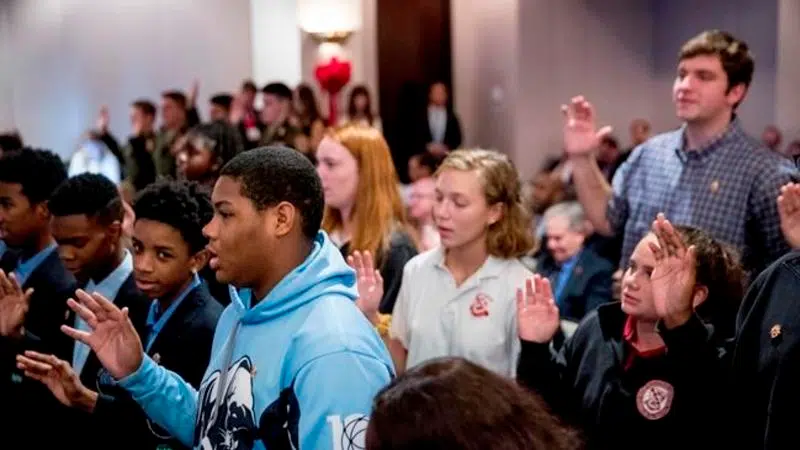
First lady calls for end of e-cigarette marketing to youth
ARLINGTON, Va. — Melania Trump said Monday that companies “must stop” marketing e-cigarettes to children, saying they are addictive and dangerous.
Marketing tobacco products to kids is already prohibited in the United States, and Juul Labs Inc., the nation’s largest maker of electronic cigarettes, has said it will cease advertising them in the U.S.
Still, some believe Juul’s early online marketing of e-cigarettes contributed to an explosion in vaping among youth.
Mrs. Trump said “it is important to me that we all work to educate children and families about the dangers associated with this habit.”
